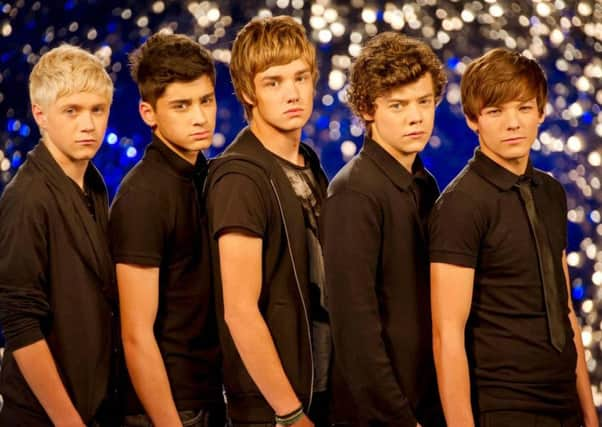The X Factor requires this change of tune from Simon Cowell to help talented young musicians – Matt Griffiths


One of the things the show does well is to platform contestants from all over the country, and it’s not just people from privileged backgrounds that succeed, unlike many other parts of the music industry. That said, I do have a number of issues with TV talent shows that follow The X Factor’s format.
For contestants, winning is positioned as the pinnacle of all achievements, and to return to the gig scene is seen as somehow shameful – a failure. When in fact, making a career in music, in whatever field, is a considerable achievement in itself.


Advertisement
Hide AdAdvertisement
Hide AdYouth Music supports music-making projects all over the country, funded by the National Lottery via Arts Council England. Most musicians working on these projects have a ‘‘portfolio career’’ built of different skills and roles – teaching, gigging, recording, event management, office work – and, in turn, they help young people to develop these skills too.
The pressure these kinds of TV shows put on artists is astonishing. They are expected to be authentic, and yet be appealing to the masses – the ‘‘full package’’. Much more needs to be done around the aftercare of contestants to support and protect their mental health and wellbeing.
Earlier this year, Jesy Nelson of Little Mix spoke out about her experiences while appearing on The X Factor and in the years since. When she won the show alongside her bandmates, she recalls thinking “this is the worst day of my life”. She now speaks incredibly candidly about the toll of the show and everything that came with it – the touring, the constant trolling – which was indeed a heavy price to pay.


The twists and turns of making your own music, and carving out a career, in this industry can be ruthless. The impact on your bank balance can be great: despite improvements, many budding musicians, interns and runners are still not paid fairly, if at all.
Advertisement
Hide AdAdvertisement
Hide AdYouth Music is a Living Wage funder, and as part of this commitment, we are campaigning for the end of unpaid internships in the music industry. Not all musicians will become as wealthy as The X Factor runners-up One Direction – but we want to ensure everyone working in the music industry has enough money to live on at least.
What the music industry is desperately calling out for is more diversity, and the inclusion of voices and experiences, which, historically, we haven’t always heard.
The sheer wealth of creativity and innovation we see from the young people who Youth Music supports makes me hopeful for change. The X Factor could – and should – be using its platform to promote and champion greater diversity of young artists.
It should open up the playing field, giving opportunities to people not just onstage but in backstage roles too: from pluggers and record label execs to production, lighting and sound.
Advertisement
Hide AdAdvertisement
Hide AdOur research report, The Sound of the Next Generation, told us that 97 per cent of young people had listened to music in the past week, and 64 per cent think they are musical (up from 48 per cent in 2006).
Evidence shows that music-making is a powerful contributor to wellbeing and social cohesion. It’s helping young people to deal with some of the big issues facing them today – including mental health problems, isolation and social inequality. However, we also know that too many miss out on music-making because of who they are, where they live, or what they’re going through.
There are already many barriers to getting a job in the industry, particularly for those who live outside London and who have limited financial means. The music industry is a vital and growing area of the economy, but a gap exists between the music education young people receive and the realities of the industry. The X Factor – or a new music-focused show – could be a powerful force for change in bridging this gap, if an alternative, more diverse and supportive model were created.
I’m not suggesting that The X Factor is akin to getting valuable industry work experience: it is just a TV show, after all. But I do believe a change is necessary for The X Factor to become more than just a cash cow for Cowell.
Matt Griffiths is CEO of Youth Music.